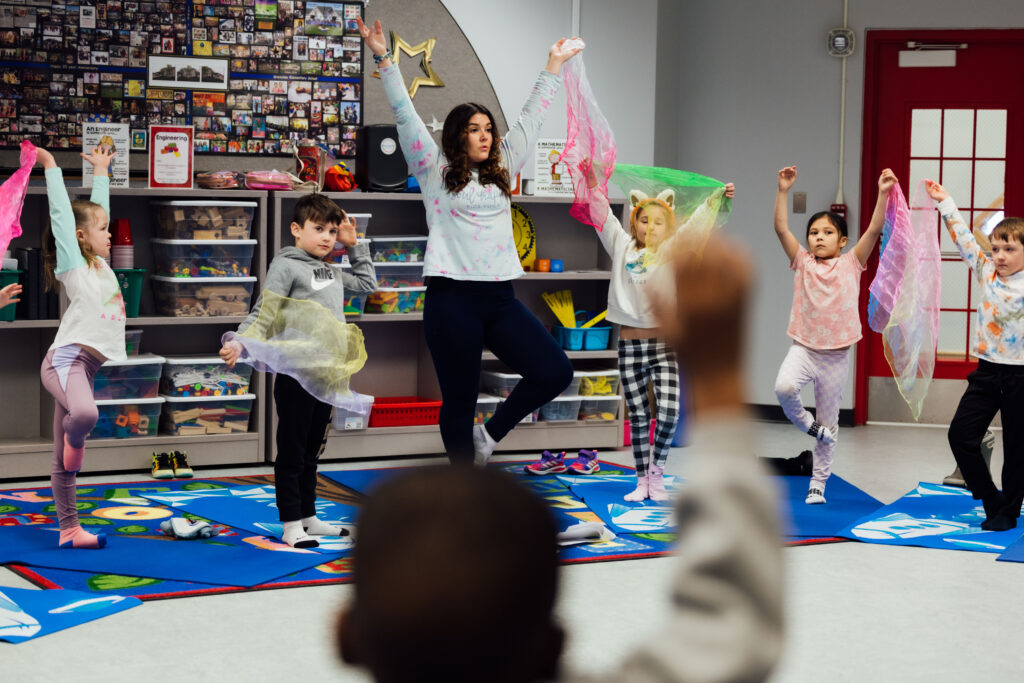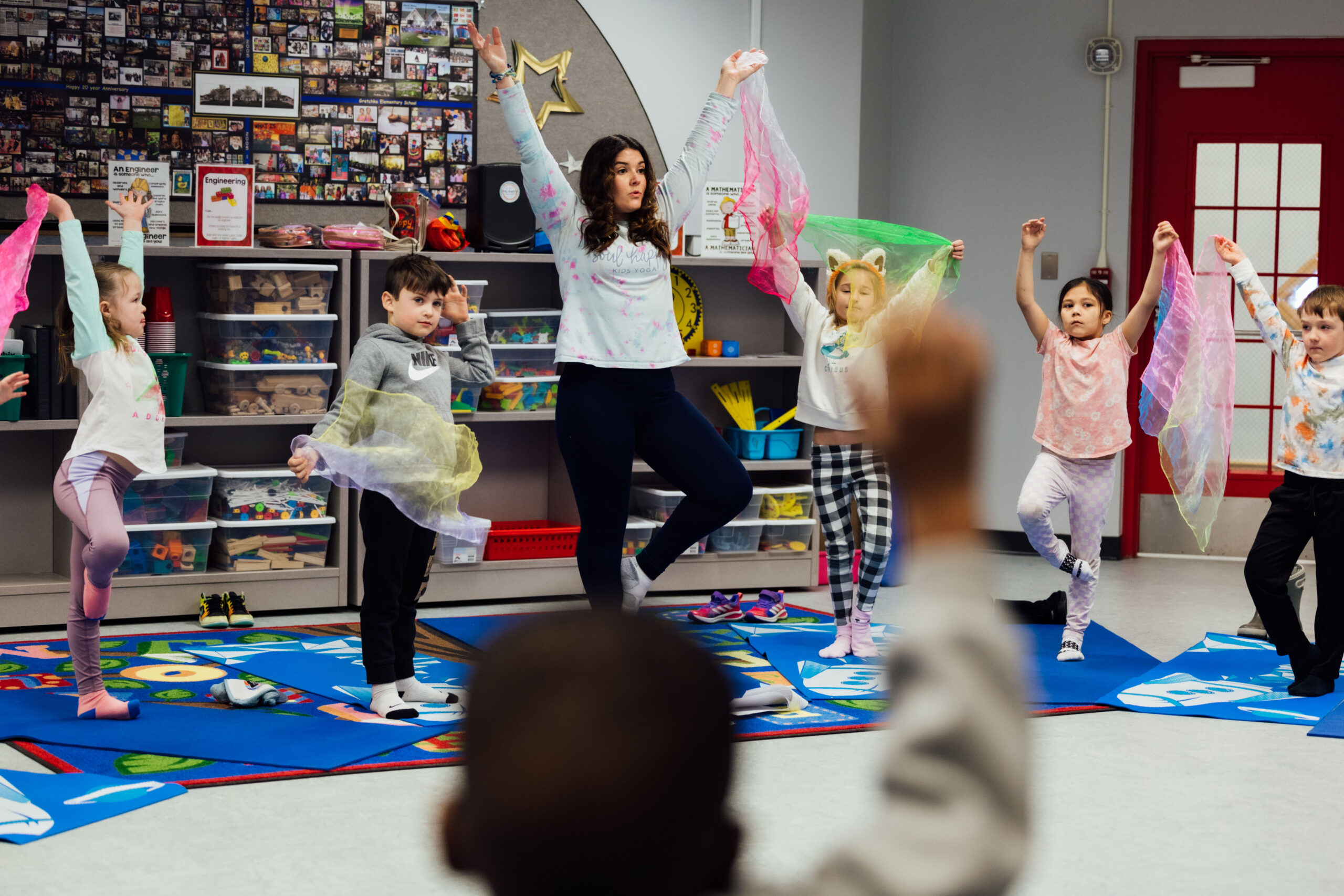
This article was originally published in 2023 and has been updated in 2025.
At West Bloomfield elementary schools, students are learning to cope with life’s stressors in a healthy way: with yoga.
The 2025-26 academic year marks the fourth consecutive year that the Jamie Daniels Foundation has partnered with the Greater West Bloomfield Community Coalition’s yoga program. Over 1,900 elementary students across all four elementary schools will receive eight weeks of yoga instruction focused on mindfulness and movement.
With the goal of preventing substance use disorder at its roots, the Jamie Daniels Foundation has proudly provided more than $60,000 in grant support to this initiative.
The program aims to promote well-being and foster emotional resilience by teaching students how to cultivate a positive mindset in the face of life’s challenges. By integrating yoga into the school day, students gain tools they can carry with them outside the classroom—and, as they grow, into adolescence and adulthood.
“This series of lessons has empowered students with essential skills such as emotional regulation, self-awareness, and stress management — critical tools that help them build resilience and better manage the demands of daily life,” says Dr. Dania H. Bazzi, Superintendent of the West Bloomfield School District.
When children learn healthy coping strategies early, they’re more likely to turn to those tools, not drugs or alcohol, when faced with stress later in life.
“We are planting critical social-emotional and mental health seeds that will continue to grow and give our children healthy tools to navigate life,” says Emma Loudermilk, the program’s yoga instructor. “By pairing yoga and mindfulness techniques, such as breathing and focused listening, we increase student awareness, improve concentration and reduce stress, providing an overall feeling of happiness.”
Now, when children experience feelings of stress, depression, and rejection, they will be better equipped to manage those feelings. They can tap into their mindfulness training and coping skills learned in yoga instead of using less healthy ways, such as substances.
In addition, research says the discipline developed by using contemplative practices in yoga can help children learn to deal with complex stressors including anxiety, trauma, bullying, abuse and learning disabilities. As a result, this can mean the difference between failure and success in both their professional and personal life according to the National Institute of Health.
“Students leave class feeling more connected to themselves and the world around them, which creates a lasting positive ripple effect in both the school and community environment,” Loudermilk says.




